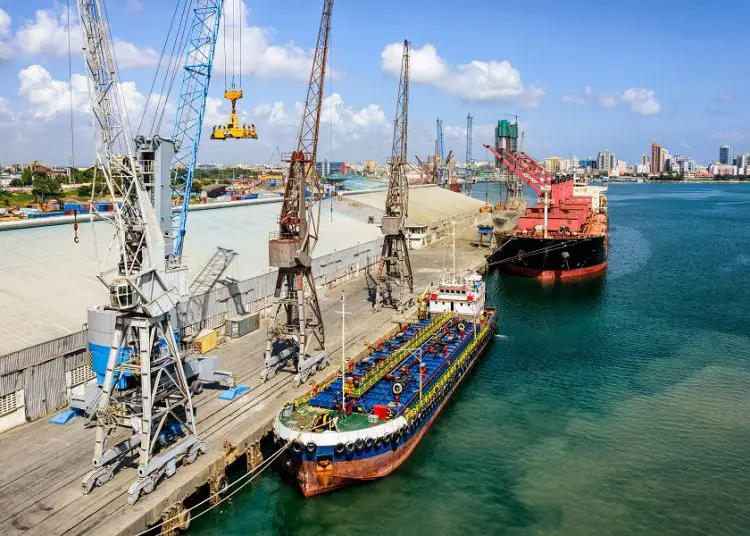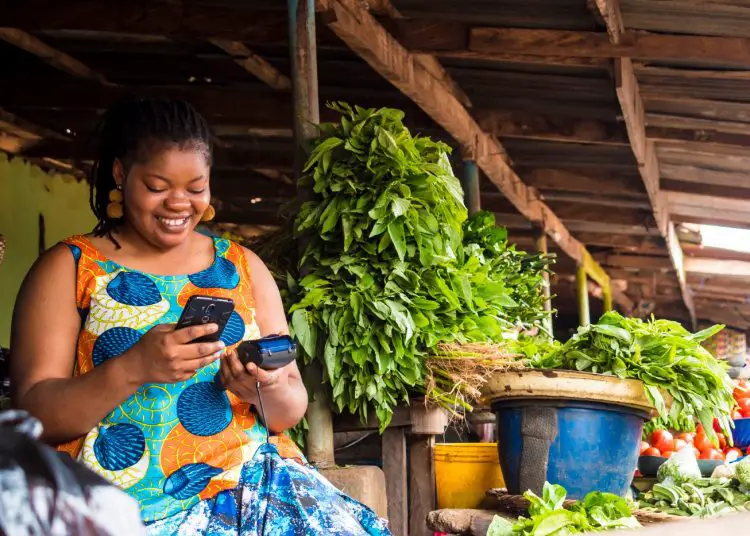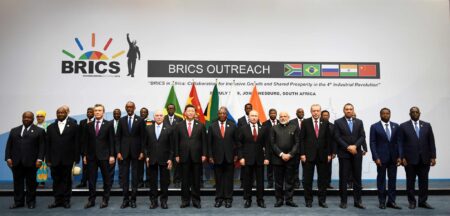- AfCFTA aims to create a new borderless market that connects 55 different countries with a combined GDP of US$3.4 trillion and a population of about 1.4 billion people
- One of the challenges that frustrate the realization of the AfCFTA dream is the transaction of cross-border payments within Africa, which are slow and costly
- Bitcoin would begin operation in facilitating cross-border payments immediately as traders only need a crypto wallet
The African Continental Free Trade Area, if implemented successfully, promises an economic fortune in Africa.
The free trade area will awaken the untapped potential and increase prosperity through increased intra-African trade. Currently, intra-African trade is meagre, contributing to only 14.4 per cent of Africa’s total exports.
A statement by the United Nations Conference on Trade and Development (UNCTAD) says the AfCFTA has the potential to increase intra-African trade by up to 33 per cent and cut the continent’s trade deficit by 51 per cent.
Among the key policies critical to AfCFTA’s success are the elimination of tariffs, significant infrastructural development, and the harmonization of customs procedures.
Read: Shift from the dollar with Pan-African Payment System launch
AfCFTA aims to create a new borderless market that connects 55 different countries with a combined GDP of US$3.4 trillion and a population of about 1.4 billion people. According to World Bank, the success of the pact that began its implementation in January 2021 would forge the largest free trade area in the world.

The trade area will lift at least 30 million people out of poverty and add at least US$450 billion in potential income to the continent.
One of the challenges that frustrate the realization of the AfCFTA dream is the transaction of cross-border payments within Africa, which are slow and costly. There are over 42 different currencies, with currency conversion costs amounting to US$5 billion annually. Furthermore, most of these currencies are valueless outside of their country of use, making it almost impractical to trade with different African currencies.
Bitcoin as a viable solution to AfCFTA’S Cross-border payments
African countries’ attempts to form a common regional currency have proven futile precisely because of all the frameworks of laws that need to be revised and harmonized in the different countries. For example, the eco in West Africa and the shilling in East Africa.
Ghana and Nigeria have even gone ahead to create their central bank digital currencies, indicating their lack of belief in the workability of the eco.
What does this mean? In the next 100 years or more, Africa cannot create a common currency acceptable throughout the continent.
However, there is an already existing common currency, bitcoin!
Without a uniform and a continentally accepted payment network, the AfCFTA is unlikely to succeed.
Bitcoin as a common digital currency?
Bitcoin would begin operation in facilitating cross-border payments immediately as traders only need a crypto wallet.
Bitcoin wallets are interoperable and are not geopolitically limited. The digital currency is decentralized and does not require harmonizing fiscal and monetary policies of the 55 countries on the continent.
Traders will be able to transact with each other across their bitcoin wallets at a much faster and cheaper rate than traditional modes of payments.
Steps towards easing cross-border payments in Africa
The Lightning Network
This decentralized network uses smart contract functionality in the blockchain to enable instant payments across a network of participants. The network has enabled the reduction of transaction costs for bitcoin-denominated transactions, thus making micropayments possible and reducing the costs of remittances. This would greatly benefit informal traders, most of whom are unbanked.
Read: Addressing cross-border insurance in Africa
Pan-African Payment Settlement System (PAPSS)
The PAPSS is a centralized payment and settlement infrastructure for intra-African trade that was developed to allow for quicker processing of cross-border transactions. The African Export-Import Bank (Afreximbank) initiative, in concert with the AfCFTA secretariat and the African Union, was launched for commercial use on January 13, 2022.

When an individual, company or institution initiates an African cross-border transaction, compliance checks between the countries involved are done within the system instantaneously. Money from a sender’s bank goes straight to the beneficiary’s bank within a couple of minutes.
PAPSS targets to connect African markets by enabling instant cross-border payments in respective local African currencies for cross-border transactions.
This development is a great leap forward toward smoothening cross-border payments, but it has a few significant fallbacks:
- Every payment bank, company, fintech and individual that wants to trade through PAPSS has to be connected to its central database, which is inefficient and time-consuming.
- Currently, PAPSS does not incentivize the financial inclusion of traditional financial institutions resulting in the financial inclusion of the informal sector traders.
- With PAPSS, trade flows from informal cross-border traders will continue to have inaccurate records as they carry on trading with cash.
- African currencies are generally weaker, caused by political instability and relatively low economic productivity. PAPPS’s form of creation will not be able to hedge those challenges.
Bitcoin progress in El Salvador
In 2021, El Salvador officially made bitcoin legal tender. Nayib Bukele, the country’s president, said that the move would offer digital banking services to the unbanked population, who make up about 70 per cent of the population. Twenty-one days after the announcement by President Bukele, Chivo (the government-backed bitcoin wallet) had 2.1 million Salvadorans using it. The wallet reported more users than customers registered under any Salvadoran bank. Within 45 days, the wallet signed over 4 million new users out of 6.5 million people.
Africa also has a significant financial exclusion problem, with around 65 per cent of the unbanked population. The majority of the unbanked in the continent work in the informal sector, accounting for over 85 per cent of all employment.
According to the UN and the African Development Bank, the informal sector also contributes at least 55 per cent of the continent’s US$1.95 trillion GDP. Traditional financial services providers have either ignored or have not been able to support this sector. The prohibitive cost structure of traditional financial services makes it unprofitable to service the informal sector.
Bitcoin adoption in the informal sector
Bitcoin adoption is easy to go around. The adoption of bitcoin would immediately grant informal businesses access to an open, permissionless and geographically penetrable monetary network.
Bitcoin’s decentralized nature makes it the ideal universal currency for the settlement of cross-border transactions. Additionally, it would be easy to create a universal pricing standard across Africa when goods and services are priced using bitcoin, leading to efficiency in production and competitive pricing for similar goods or services in the market.
Moreso, Bitcoin has the advantage of immediate and final trade settlement. The need for transactions to pass through offshore banks for clearing and settlement and the associated costs is eliminated. Bitcoin adoption will not only reduce unnecessary delays but will also evade the risk of exchange rate fluctuations due to exchange rate misalignments. Individuals and companies operating businesses in countries experiencing hyperinflation would be able to use bitcoin as a hedge, consequently insulating themselves from these challenges that hit the informal sector the most.
Infrastructure: A significant objective of AfCFTA’s success
The AfCFTA’s objectives to boost intra-African trade can only be achieved with quality infrastructure.

Energy infrastructure is a significant financing need in Africa. More than 600 million people in sub-Saharan Africa are without access to electricity. The energy infrastructure inefficiency drives up the cost of doing business and hinders the delivery of quality services such as healthcare and education. Africa needs to get alternative sources of finance to bridge the gap.
In conclusion, Bitcoin adoption presents central banks in Africa with a unique opportunity to accumulate and hold bitcoin as part of their reserves.
For the imminent multipolar world that we are currently living in, Bitcoin adoption reduces reliance on currencies like the euro and the dollar for trade. Countries like El Salvador and the Central African Republic will have an advantage over their peer if the adoption of bitcoin continues to increase. African central banks would gain a significant first-mover advantage in this regard ahead of most central banks globally.
Meeting the objectives of the African Continental Free Trade Area will require a lot of creativity, tenacity and willingness to experiment with new ideas and approaches.
Read: Africa’s economies to defy pandemic, perform well in 2022/23











